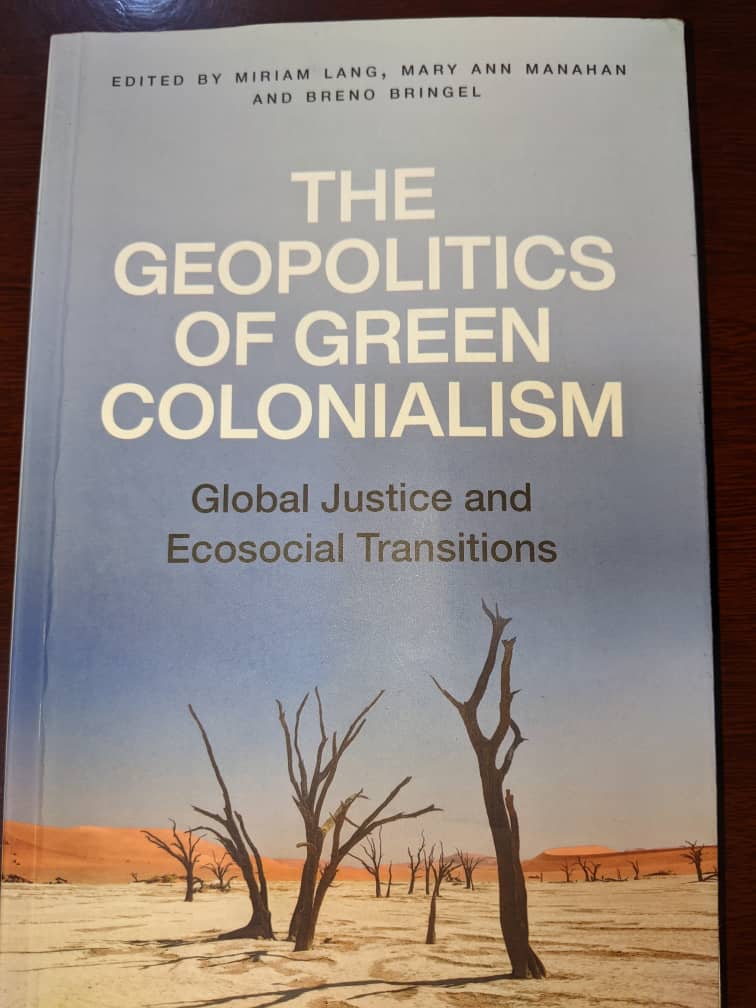A new book, The Geopolitics of Green Colonialism has exposed the global north solution to the climate crisis as leading to new environmental injustices and green colonialism.
The global north consists of the rich and powerful countries that contribute 92 per cent to global emissions responsible for the environmental crisis plaguing the world. Africa’s contribution to global emissions is 4 per cent.
The book, edited by renowned environmentalists including Prof Miriam Lang from Ecuador, Mary Ann Manahan from the Philippines and Breno Bringel from Brazil has over 20 contributors including Nigeria’s Dr Nnimmo Bassey.
The experts exposed the global north’s environmental politics, which centres around the assumption that in some regions of the world, some bodies and populations need to be of service to others when it comes to environmental conditions that allow life in dignity.
The book’s first chapter debunked the fallacy that everything will be fine once fossil is replaced with renewables.
An excerpt from the chapter states: “In recent years, a new global agreement has emerged, committed to transforming the energy system from one based on fossil fuels to one with reduced carbon emissions, based on ‘renewable’ energies. Its leitmotif is to fight global warming and the climate crisis by promoting an energy transition driven by the electrification of consumption and digitalization. However, instead of protecting the planet, it contributes to its destruction, deepens existing inequalities, exacerbates the exploitation of natural resources and perpetuates the model of the commodification of nature.”
The book recalls when all major world powers (the EU, the US and China) made commitments to reduce carbon emissions and shift their economies towards low-carbon and decarbonized modes of production. It however revealed that the commitment opened a new phase of environmental dispossession of the global South affecting the lives of millions of human and non-human sentient beings, further compromising biodiversity and destroying strategic ecosystems.
In his contribution to the book, eminent environmentalist Dr Nnimmo Bassey posited that Africa is seen as a vast landscape with limitless resources to be exploited, hence the concept of conservation where the people can be removed to ‘protect nature.’ He describes this as ‘Africa without Africans,’ during the book presentation in Lagos on June 22.
At the presentation, Prof Miriam Lang (Ecuador), Ibrahima Thiam (Senegal), Breno Bringel (Brazil), Roland Ngam (South Africa) and Nnimmo Bassey (Nigeria) attended the event.
Bassey, Director of Health of Mother Earth Foundation (HOMEF), said “beneath the sustainability branding, these climate solutions are leading to new environmental injustices and green colonialism.
“The green growth and clean energy plans of the global North requires the large-scale extraction of strategic minerals from the global South.
Also speaking, Prof Lang made a case for climate justice, insisting on the need to explore alternative pathways toward a liveable and globally just future for all.
All the speakers acknowledged that there are ongoing injustices and imbalances which include among others, “the exploitation of ‘unlimited resources’ in the run for transitioning to non-fossil fuel sources of energy.
“Imposition of conservation lands to develop carbon market-related projects.
“Converting lands into toxic landfills of electronic waste.
“Projecting an asymmetric market of renewable technology in which countries in the Global South pay a higher price.”
All those dimensions they submitted: “have something in common – a narrative that disregards people’s connection to their places, to their land.”








More Stories
Teenager in viral photo of Obi’s 2023 presidential campaign rally, Alabi Quadri languishes in jail
Ribadu tells families of kidnapped victims not to pay any ransom
Ozigbo rejects Anambra APC guber primary, calls it a theft